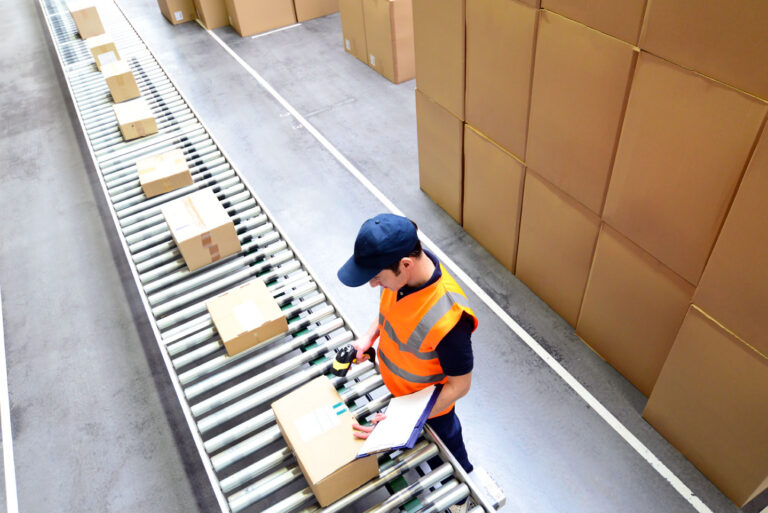A Microsoft apoiou o Bradesco, um dos principais bancos do país, na criação da BIA (acrônomo para Bradesco Inteligência Artificial) Tech – um copiloto de Inteligência Artificial (IA) personalizada para as necessidades do dia a dia dos desenvolvedores. A instituição financeira tem uma estratégia robusta em inovação e utilizou toda a sua expertise em inteligência artificial para criar uma solução focada em desenvolvimento com o compartilhamento de códigos por meio do GitHub Copilot e do Azure OpenAI Service. As iniciativas ajudaram a modernizar os processos internos do banco e levaram a ganhos de eficiência de até 40% na escrita de trechos de códigos.
Ampliar a transformação digital em serviços usados diariamente por milhões de brasileiros não é uma tarefa fácil. Para isso, o Bradesco utiliza os aprendizados e o DNA inovador que deu origem à BIA – assistente de IA lançada em 2016 e que revolucionou serviços de atendimentos ao consumidor no Brasil – em sua estratégia de inovação. Desde o lançamento de sua IA, que já possui capacidades de IA generativa e permite geração rápida e precisa de documentos, foram quase 2,5 bilhões de interações com os clientes e uma ampla gama de serviços adicionados, que vão desde o envio de PIX e pagamento de boletos até recomendações personalizadas de Produtos, Serviços e Investimentos, além de avisos em caso de suspeita de fraude em transações. Atualmente, a BIA com IA generativa está disponível para 40 mil funcionários e mais de 500 mil clientes.
"O Bradesco sempre investiu em inovação e foi um dos pioneiros no uso de inteligência artificial em serviços de atendimento financeiro. Acumulamos ótimas experiências com a BIA atendendo nossos clientes com eficiência e, posteriormente, com a BIA Agências auxiliando nossos gerentes na linha de frente para entregar melhores serviços e consultar normativos internos. Por isso, queríamos aproveitar mais uma vez todo o potencial da IA Generativa para ajudar nossos desenvolvedores a serem mais eficientes e terem tempo para serem mais criativos e consultivos”, explica Nelson Borges, Superintendente de TI do Bradesco.
Uma BIA (Tech) para os desenvolvedores
Com a implementação bem-sucedida da BIA tanto para os funcionários de agências quanto para os clientes externos, o Bradesco avança mais uma vez na adoção de IA com a criação da BIA Tech, que aproveita todo o poder de nuvem do Microsoft Azure e grandes modelos de linguagem do Azure OpenAI Service para endereçar desafios concretos da equipe de TI. O primeiro deles foi apoiar na escrita de instruções dos projetos de desenvolvimento.
Para que um novo recurso seja introduzido, o time de desenvolvimento do Bradesco precisa escrever ‘histórias’ com as instruções sobre o que precisa ser feito pelos desenvolvedores. Com o grande poder de análise da IA Generativa, a BIA Tech se tornou um instrumento importante para melhorar a qualidade dessas instruções, quebrando cada história em partes menores de orientações e destacando elementos ausentes para tornar as informações mais claras. Além disso, o time criou um plugin para permitir que os desenvolvedores conversassem em linguagem natural com a BIA Tech integrada às ferramentas já existentes e desenvolvessem a história de maneira assistida.
“Tudo o que está sendo planejado é com base no feedback dos times de desenvolvedores do Bradesco. A Bia Tech já tem mais de 1,5 mil usuários fiéis (heavy users) e as equipes conseguiram perceber os ganhos de se trabalhar com um copiloto de IA apoiando nas atividades do dia a dia dos desenvolvedores.”, destaca Nelson.
Segundo a equipe técnica do Bradesco, a BIA Tech permitiu não somente aliviar o trabalho mais burocrático de um projeto, como também aumentou a qualidade das histórias produzidas em cerca de 46 pontos percentuais, com avaliação média de 8,5 pontos de 10. Esse sucesso levou o time de TI do banco a ampliar as capacidades da assistente de IA, que agora pode ajudar a avaliar os riscos de uma mudança no código, identificar potenciais vulnerabilidade, ajudar com métricas, entre outros. A expectativa é que, no futuro, a BIA Tech seja expandida para abranger todas as etapas do ciclo de vida de desenvolvimento de software.
Ainda segundo Nelson, “o uso da BIA Tech para avaliar soluções de incidentes trouxe ganhos expressivos como a redução de 23% do tempo de análise de um incidente envolvendo a etapa de identificação de causa raiz e a definição de soluções de correção, com uma assertividade de 90% nas soluções sugeridas”.
BIA Tech com Github
O Bradesco também está investindo em soluções de IA combinadas com automação que podem complementar e aprimorar ainda mais a eficiência de processos internos, abrangendotoda a cadeia de desenvolvimento. Na prática, isso se reflete na aceleração do “Time-To-Market”, período que um produto leva desde a concepção até estar disponível para venda no mercado, reduzindo o tempo necessário para provisionamento e configuração de uma estrutura.
As soluções combinadas da BIA Tech e Github Actions e Github Copilot promoveram a automação nos processos de gerenciamento de código, o que beneficia a eficiência de processos, a colaboração entre os times e maior qualidade da gestão por meio de telemetria e análises de dados – contribuindo na criação de produtos do banco.
Atualmente, o GitHub Copilot sugere mais de 10.000 linhas de código por dia, com grande aceitação por parte dos desenvolvedores. Esses números refletem uma melhoria significativa na eficiência do desenvolvimento de software, com ganhos de tempo que variam de 30 a 40% em um trecho de código.
O objetivo é capacitar os funcionários e dar ferramentas para que eles possam trocar tarefas repetitivas por atividades que explorem o seu potencial criativo e cognitivo, garantindo que o banco permaneça na vanguarda da inovação tecnológica.A implementação do GitHub, GitHub Copilot e da Bia Tech no Bradesco abre caminho para a exploração de novas tecnologias e inovações. O banco também está experimentando outras soluções de IA e automação que podem complementar e aprimorar ainda mais seus processos internos.
“O que percebemos é que o uso de AI dentro do ciclo das soluções de TI pode trazer ganhos consideráveis de produtividade aos engenheiros, seja na criação da solução ou na operação. Nosso foco para 2025 será expandir e ampliar os casos de uso por meio de arquiteturas abertas, colaborativas e modernas de AI com foco em multiagentes.”, finaliza Nelson.
“A IA Generativa apresenta um potencial sem precedentes para instituições financeiras. Ela apoia as equipes nas tarefas do dia a dia, gerando agilidade nos processos repetitivos, apoio a equipes técnicas e facilidade no acesso de normativos internos. Essa tecnologia também é grande aliada na criação de soluções assertivas, alimentadas por dados, e que vão atender às necessidades específicas dos diferentes perfis de clientes do banco”, comenta Joana Moura, vice-presidente para Clientes Corporativos na Microsoft Brasil.











